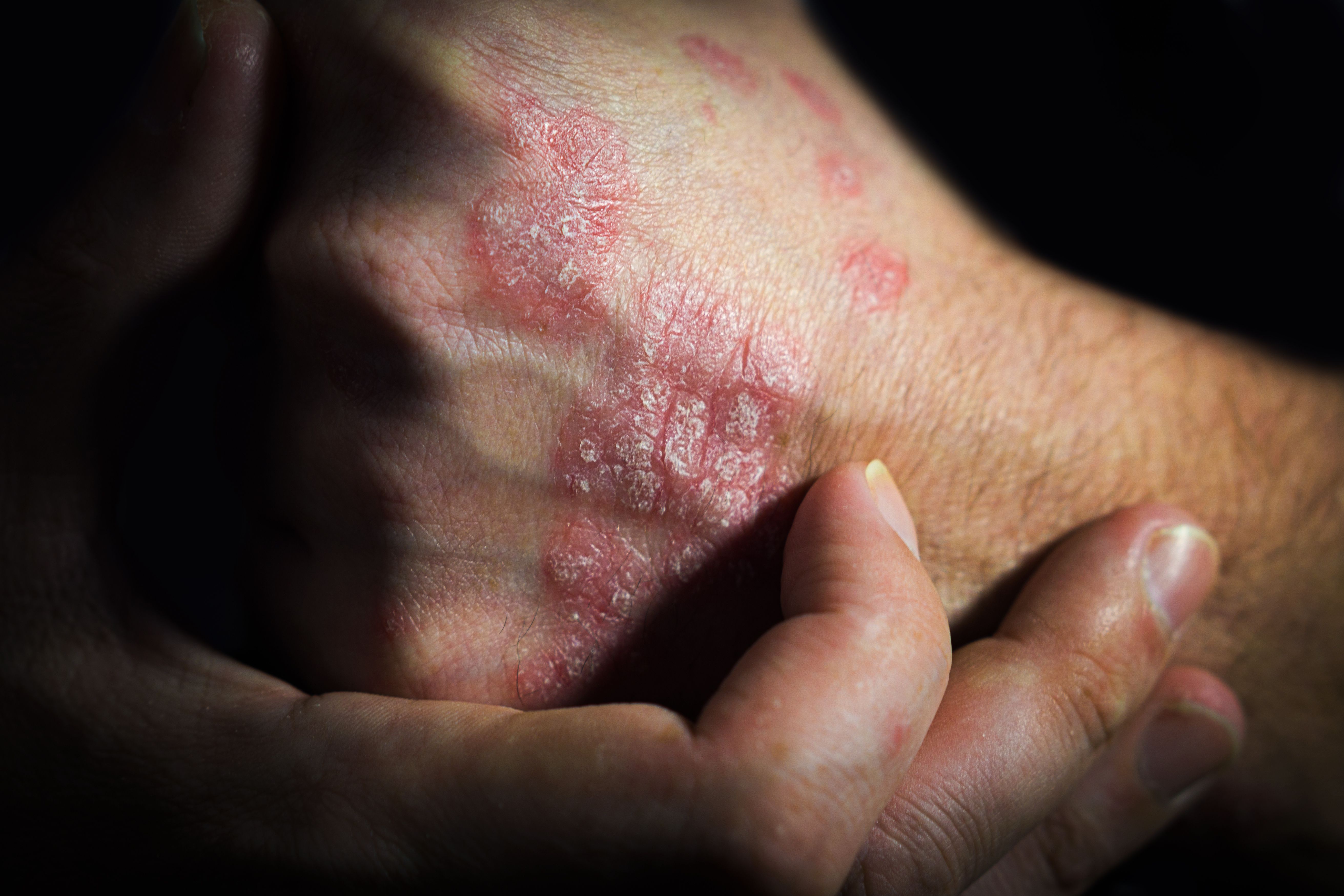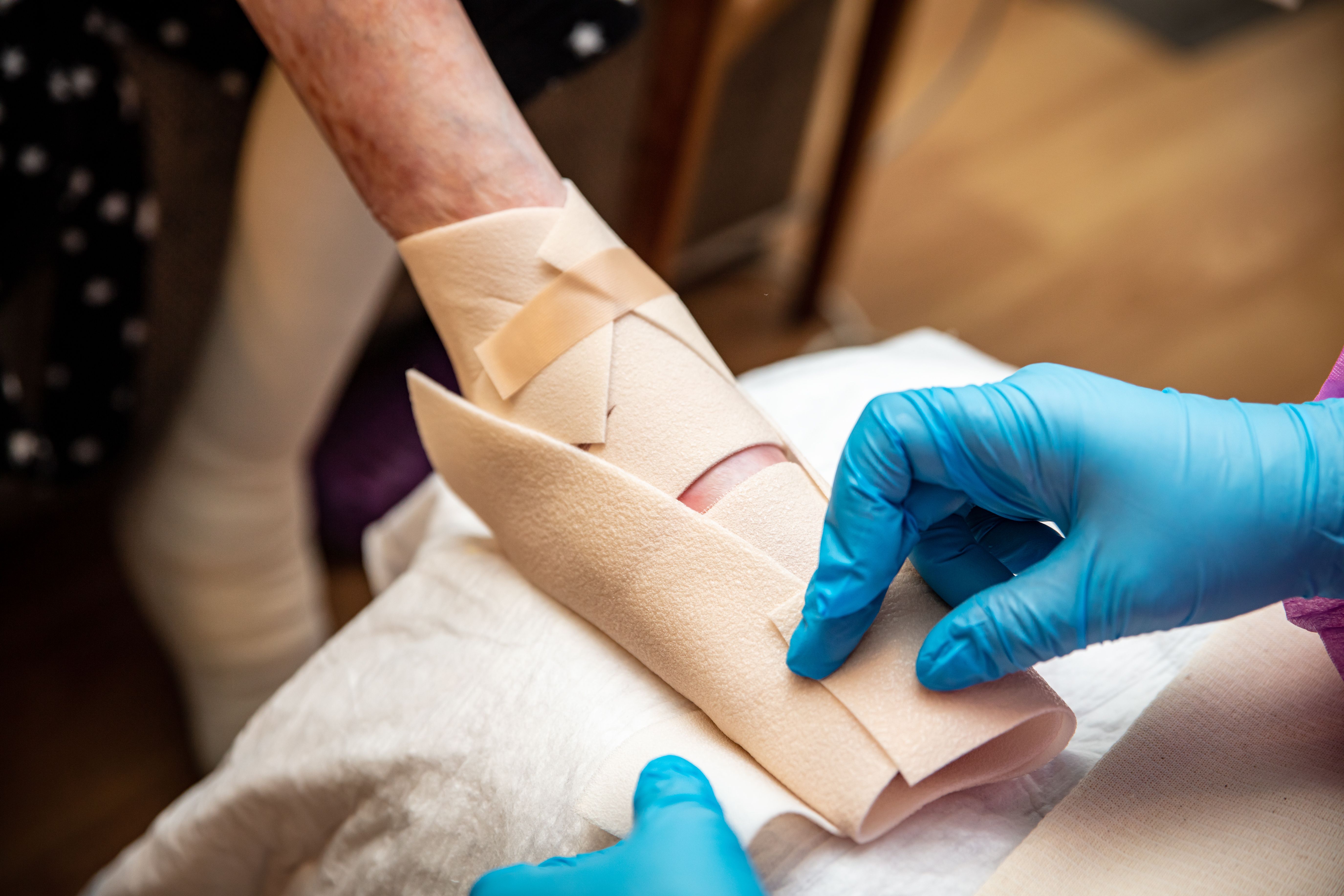- Case-Based Roundtable
- General Dermatology
- Eczema
- Chronic Hand Eczema
- Alopecia
- Aesthetics
- Vitiligo
- COVID-19
- Actinic Keratosis
- Precision Medicine and Biologics
- Rare Disease
- Wound Care
- Rosacea
- Psoriasis
- Psoriatic Arthritis
- Atopic Dermatitis
- Melasma
- NP and PA
- Skin Cancer
- Hidradenitis Suppurativa
- Drug Watch
- Pigmentary Disorders
- Acne
- Pediatric Dermatology
- Practice Management
- Prurigo Nodularis
- Buy-and-Bill
Article
Amgen Releases Positive Phase 3 Results for Stelara Biosimilar
Author(s):
A phase 3 study conducted by Amgen found that the company’s ustekinumab biosimilar was as safe and efficacious as the reference product (Stelara) in patients with moderate to severe plaque psoriasis.
Amgen shared preliminary results from its phase 3 study showing that the company’s ustekinumab biosimilar (ABP 654) had comparable safety and efficacy profiles to the reference product (Stelara) among patients with plaque psoriasis.
The multicenter, randomized, double-blinded, comparative clinical study met the primary efficacy end point showing that the biosimilar candidate had no clinically meaningful differences compared with Stelara.
“Amgen remains committed to providing patients who live with inflammatory diseases access to high-quality biosimilar medicines…. We look forward to continuing to expand our inflammation portfolio to offer patients a variety of treatment options,” said David M. Reese, MD, executive vice president of research and development at Amgen, in a company statement.
An estimated 125 million people have psoriasis globally, including about 14 million in Europe and more than 7.5 million people in the United States. About 80% of people with psoriasis have plaque psoriasis.
Stelara, a drug developed by Janssen, is an interleukin-12 and interleukin-23 antagonist used for the treatment of moderate to severe plaque psoriasis in adult and pediatric patients 6 years and older who are candidates for phototherapy or systemic therapy. Ustekinumab products can also be used to treat adults with active psoriatic arthritis, moderate to severe Crohn disease, and moderate to severe ulcerative colitis.
According to Janssen’s annual report, during the 2021 fiscal year Stelara generated about $5.9 billion in US sales. The latest patent is anticipated to expire in September 2023. There are currently no ustekinumab biosimilars approved in the United States or European Union.
The analysis evaluated the change in percentage of the psoriasis area severity index in adult patients with moderate to severe plaque psoriasis over 12 weeks. In total, 563 patients were randomized to receive either the biosimilar (n = 281) or the reference product (n = 282).
Other Ustekinumab Biosimilars On the Way
In addition to Amgen, Formycon, Samsung Bioepis, Bio-Thera Solutions, Hikma Pharmaceuticals, Alvotech, BioFactura, and NeuClone are in the process of developing their own biosimilars to Stelara.
Formycon recently acquired assets for an ustekinumab biosimilar and a biosimilar referencing Lucentis (ranibizumab) from ATHOS. Formycon will have full commercialization, development, and approval rights of the ustekinumab candidate.
Bio-Thera and Hikma have partnered to commercialize BAT2206, wherein Hikma would have the commercialization rights for the United States and negotiation rights for commercialization in Europe. Bio-Thera announced the initiation for a phase 3 trial for the ustekinumab biosimilar in July 2021.
Also in July 2021, Samsung Bioepis initiated a phase 3 trial for SB17, another potential Stelara rival. If the candidate is approved by the FDA, physicians in the United States may extrapolate its use for the other indications approved for the reference product.
In the same month, BioFactura announced that it began its phase 1 trial for its biosimilar candidate (BFI-751). In September 2021, the Maryland-based company said that is was partnering with Rani Therapeutics to package the candidate in the form of a robotic pill that can be ingested and delivered into the small intestine via an injection.
Alvotech announced that it began clinical evaluation of its potential biosimilar (AVT04) in July 2021, saying that it started recruiting patients with plaque psoriasis from Central and Eastern Europe, New Zealand, and Australia for 2 studies that will evaluate the biosimilar’s safety, efficacy, and pharmacokinetics.
In October 2020, NeuClone shared positive results from its phase 1 trial assessing the pharmacokinetic similarity between its candidate (NeuLara) and samples of Stelara from the United States and European Union. The company also confirmed that the biosimilar was comparable to the reference product in safety, immunogenicity, and tolerability among healthy individuals.






